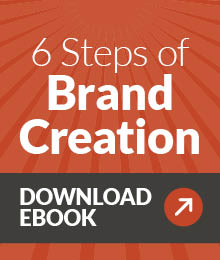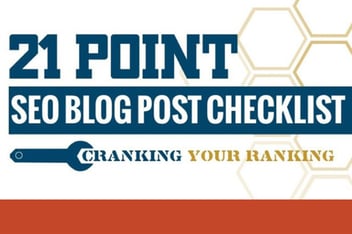Keyword Selection: Spot Between Search Volume And Ranking Potential

This blog post was originally titled “Pick the Perfect Keywords”—read on to find out why I changed my mind.
In the course of my research, as I learned a little more about the subject, I tested out my own assumptions about which terms my readers might use to find information about choosing keywords.
Turns out, some of those assumptions were wrong, so I changed my mind base my decision on that newly acquired language. Here’s how you can do the same when choosing keywords (and titles) for your own content.
Questions to consider when choosing keywords:
1.What do I think my ideal customers are searching for?
To answer this question, go back for a review of your customer personas—what are their pain points? What do they need that you can provide?
Remember to consider searches for not only the specific product or service (small business accounting software), but also the problem (complicated billing procedures) and the benefits of solving the problem (improved cash flow, fewer overdue accounts).
(Find a detailed form for creating customer personas, plus examples of the finished results, in Branding Mistake: Not Mapping Out Customer Personas – a problem/solution paper.)
Add to this question by considering whether your customers are primarily limited to a specific geographic location. If your business is conducted primarily online with a potential global reach, you may not want to localize your keywords, but if you serve a specific city, state or region, include that localization in the keyword phrases you target.
2. How frequently are those phrases searched?
Once you have a working list to start from, it’s time to do some research. There are a number of free tools you can access that will answer some important questions about the keyword phrases you’ve chosen, including how often those phrases are actually searched. (Here is marketer Neil Patel’s list of 10 keyword research tools.)
For example, in preparation for this blog post, I used Google Adwords and Moz Keyword Explorer to check the search volume for “pick the perfect keywords”.
Neither tool gave me a range for that specific phrase, which means it isn’t the kind of phrase people are searching. But, they did offer up suggestions such as “SEO keywords,” “SEO keyword research,” “seo words” and “keyword analysis.” All of those suggestions had search volumes of at least 500 searches a month, and some had many more.
I tried out “keyword selection,” which still had a lower volume (50-100 searches per month), but at least showed up on the charts. Additional suggestions from the tools for it included “keyword planner” and “keyword research tool”.
Since this post isn’t itself a “tool” or “planner,” I ruled out those suggestions and narrowed my choices to these:
-
SEO keyword research
-
Keyword analysis
-
Keyword selection
Now, on to the next step and question to answer.
3. How difficult will it be to rank for those keywords or phrases?
While it may seem natural to want to target keywords with a high search volume, you will need to keep in mind the competition for those searches. “Nike shoes” has a search volume of more than a million searches per month. But competition for that term is very high, and it is unlikely that Rick’s Mississippi Marathon Running Shop in Small Town, USA, is going to rank high on those searches alone. But, if his target market is specifically marathoners from his area, he has a better chance of ranking with a combination of keyword phrases that incorporate “best marathon shoes” and his location.
So, what about my three choices? Here’s what I found out about their search rank potential.
According to Google Adwords:
-
“SEO keyword research” has a “medium” competition rating
-
“keyword analysis” has a “medium” competition rating
-
“keyword selection” has a “low” competition rating
Moz’s SERP (search engine ranking page) analysis offers a different scale, giving a 1-100 difficulty rating.
-
“SEO keyword research” has a 76 difficulty rating
-
“keyword analysis” has a 71 difficulty rating
-
“keyword selection” has a 65 difficulty rating
Which would you choose?
Despite its lower search volume, I decided to go with “keyword selection”—as you could tell at the beginning of this post—because it still seemed to be a better reflection of what the post is actually about. And we need to write for readers as much as we do for search engines.
Of course, keyword selection is just the beginning of the process. How you use that keyword will play an important role in determining whether your blog post or other website content is easy for the right audience to find when they conduct a search.
Here are a few additional blog posts to help you find the right balance of keyword placement.
Along with optimizing your blog posts with the right keywords, you’ll want to take time to review the rest of your website pages from time to time to ensure they are still focused on the search terms your customers are most likely to use. Use our On-Page SEO Planning Template and Guide to keep you on track as you review your landing pages, services listings, and other website pages to ensure you’ve selected and used the right keywords for each of them.
-1.png?width=1652&height=294&name=Jones(RGB)-1.png)












